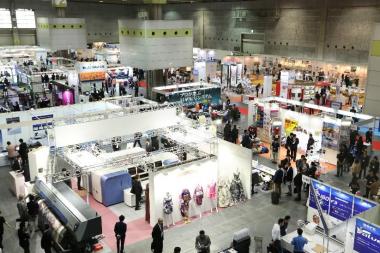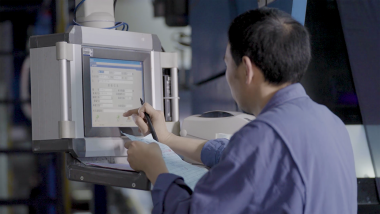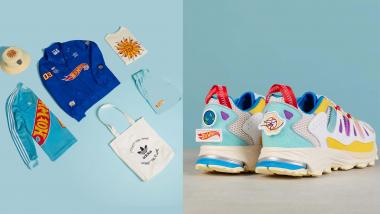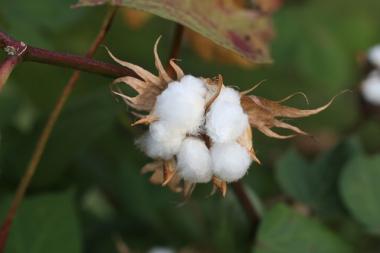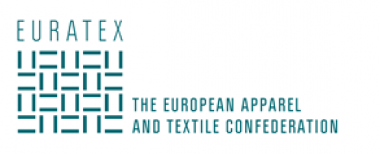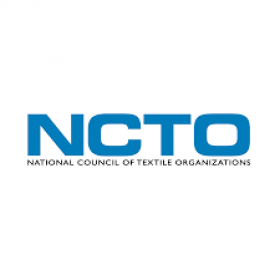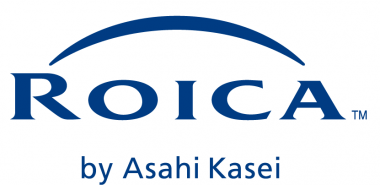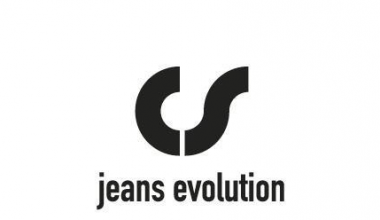TMAS: Svegea installs Collarette Cutter at Löffler
Svegea of Sweden – a member of TMAS, the Swedish Textile Machinery Association – has recently installed an EC300-S collarette cutter for the high speed production of tubular apparel components as well as an FA350 automatic roll slitter at the plant of Löffler, in Ried im Innkreis, Austria.
The EC 300-S collarette cutter is equipped with the computer-controlled True-Drive II and high pre-feed device, which is used by garment manufacturers around the world for the production of tubular apparel components such as cuff and neck tapes and other seam reinforcements. It operates at speeds of up to 20,000 metres per hour. The integrated, fully automatic FA350 roll slitter FA500 roll slitter is equipped with three separately adjustable settings enabling three different band widths to be cut within the same cutting cycle. Automatic tube sewing units are provided for sewn tubes in optional rolled or flat folded forms, depending on customer preference.
Sports and knitwear specialist Löffler is celebrating its 50th anniversary in 2023. Its plant in Ried houses 25 circular knitting machines and three seamless knitting machines with an annual output of around 905,000 square metres of fabric, and in addition to product development, design, cutting and some sewing are all carried out in-house.
Löffler is known for its transtex under garments, which ushered in the two-layer principle of structures combining hydrophobic polypropylene and other fibres like cotton, Modal, Tencel or merino wool.
Before transtex, endurance athletes usually wore pure cotton underwear next to their skin, which became wet over time and cooled the body down. Löffler’s two-layer fabric prevented this, since the polypropylene does not absorb moisture and instead wicks it to the outside, where it can evaporate to keep the skin dry.
Innovation has been ongoing ever since, and in December, Löffler received an ISPO Award 2022 for transtex Retr’x – its latest functional underwear made from recycled polypropylene from textile waste and a combination of recycled and GOTS-certified organic cotton. Transtex Retr’x is neither dyed or bleached and is Standard 100 by Oeko-Tex as well as Made In Green by Oeko-Tex approved.
In addition to its own branded products, the plant makes sports garments for sister company Fischer, which is also based in Ried, and is at the same time involved in significant government tender projects, including the supply of polo shirts for the Austrian Red Cross and for the German and Austrian police forces. Combined, Löffler and Fischer employ approximately 700 people in the region of Upper Austria.
TMAS by AWOL Media

















